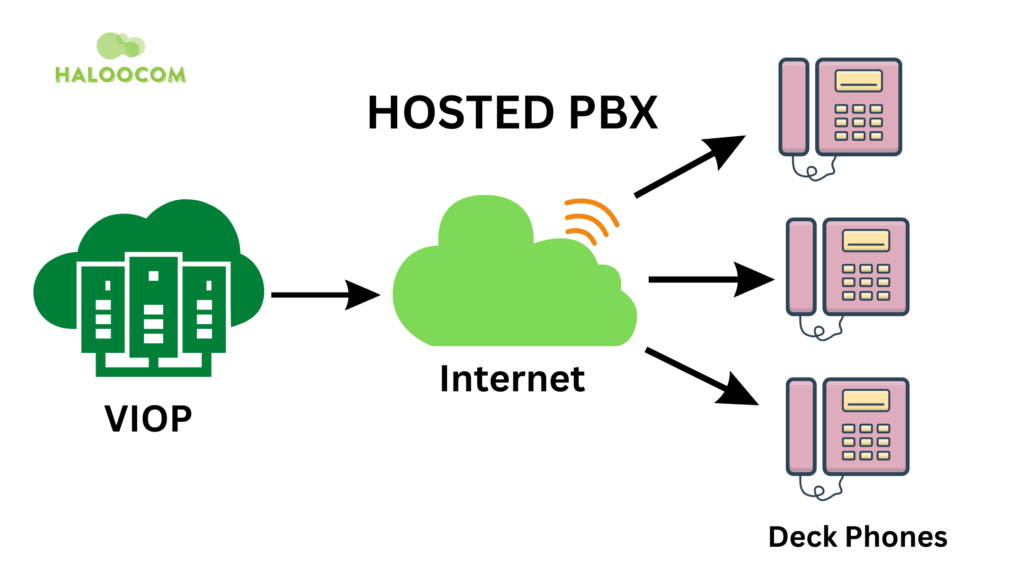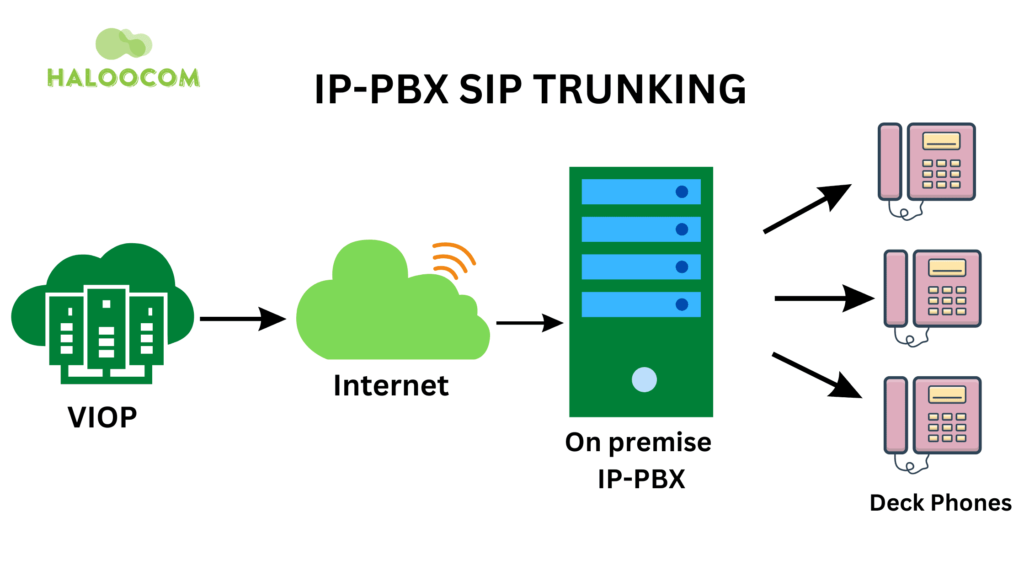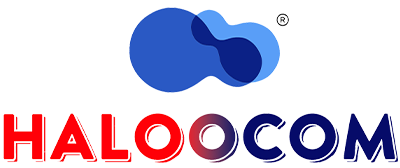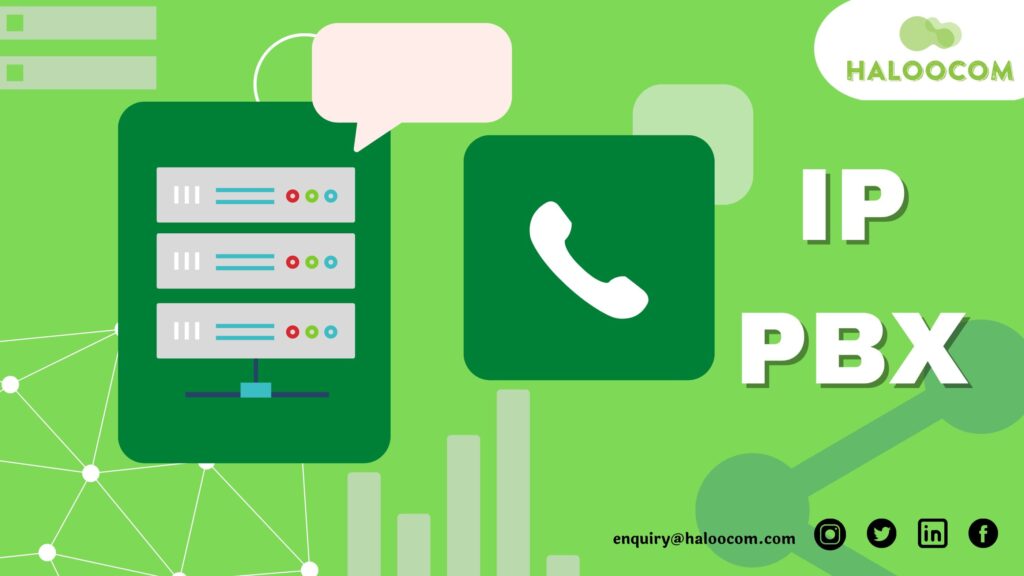Considering starting a new business phone system? There are numerous options available, with IP PBX being just one of them.
If you currently have a PBX, switching to a cloud-based trunking provider for PSTN connectivity could be a wise choice. However, it’s important to keep in mind that it may not be a straightforward process, as you don’t want to encounter any new issues with incoming calls.
This guide will provide information about IP-based phone solutions, the differences between them and VoIP, and any limitations you should be aware of
What Is IP PBX?
IP PBX (Private Branch Exchange) is a telephone system that facilitates internal and external communication within an organization. It uses the Internet Protocol (IP) to transmit voice and data signals, enabling communication through IP-based networks. IP PBXs are equipped with features such as call forwarding, voicemail, conference calling, and others, and can be used as an alternative to traditional PBXs that operate on analog or digital circuits. They are often seen as a cost-effective solution for small to medium-sized businesses looking to integrate their telephony and data networks.
History of PBX
The PBX, or Private Branch Exchange, has a long history that dates back to the late 19th century. The first PBX systems were manual switchboards that were operated by operators who manually connected calls between parties. These early switchboards were used in large businesses and government agencies.
In the 1960s and 1970s, PBX systems became automated, allowing direct dialing and other advanced features. These early automated PBX systems used analog circuits to connect calls and were commonly known as Centrex systems.
In the 1980s and 1990s, digital PBX systems were introduced, offering improved call quality and advanced features such as voicemail and computer telephony integration. These digital PBXs continued to evolve and eventually gave rise to IP-based PBXs, which use IP networks to transmit voice and data signals.
Today, IP PBXs are widely used by businesses of all sizes and are seen as a cost-effective alternative to traditional PBXs and other communication solutions.
Call centers in the early 2000s played a crucial role in the development of today’s PBX features, including headsets, softphone applications, and call routing. These innovations brought significant cost savings compared to analog phone systems and helped establish the PBX as a key player in modern communication.
How does an IP PBX work?
An IP PBX system works by using the Internet Protocol (IP) to transmit voice and data signals between telephones within an organization. The IP PBX acts as a central hub for all incoming and outgoing calls, routing them to the appropriate destination based on pre-defined rules and configurations.
When a call is made, the IP PBX converts the analog voice signal into digital data packets, which are then sent over the IP network to the recipient’s telephone. The recipient’s telephone converts the digital data packets back into an analog voice signal, allowing the call to be heard.
The IP PBX also manages call features such as call forwarding, voicemail, conference calling, and others. These features are implemented through software and are often configurable through a web-based interface, allowing administrators to easily manage the system.
IP PBX systems can be deployed on-premise, in the cloud, or as a hybrid solution. In an on-premise deployment, the IP PBX hardware and software are installed and maintained on-site by the organization. In a cloud-based deployment, the IP PBX service is provided by a third party and is accessed over the internet. A hybrid solution combines elements of both on-premise and cloud-based deployments.

Benefits of IP PBX systems
There are several benefits to using an IP PBX system for your business communication needs, including:
- Cost savings: IP PBX systems can be more cost-effective than traditional PBXs and other communication solutions, as they use IP networks to transmit voice and data signals, which can be less expensive than traditional telephone circuits.
- Scalability: IP PBX systems are highly scalable and can be easily expanded as your business grows, allowing you to add new users and features as needed.
- Flexibility: IP PBX systems are often configurable through a web-based interface, allowing administrators to easily manage the system and make changes as needed.
- Improved call quality: IP PBX systems use digital signaling, which can result in improved call quality compared to traditional analog systems.
- Advanced features: IP PBX systems are equipped with a range of advanced features, such as call forwarding, voicemail, conference calling, and others, which can improve the efficiency and productivity of your organization.
- Integration with other systems: IP PBX systems can be integrated with other systems, such as customer relationship management (CRM) software, making it easier for your employees to access information and communicate with customers.
- Disaster recovery: IP PBX systems can be deployed in the cloud, providing built-in disaster recovery capabilities, which can ensure that your business stays connected even in the event of an unexpected outage.
IP PBX limitations
While IP PBX systems offer many benefits, there are also some limitations to consider in the current market, including:
- Internet connectivity: IP PBX systems rely on a stable and high-speed internet connection to function effectively, which can be a challenge in areas with limited or unreliable internet access.
- Complexity: IP PBX systems can be more complex to set up and maintain than traditional PBXs, requiring specialized knowledge and expertise to manage.
- Latency: Latency, or the delay between the time a call is made and the time it is received, can be an issue with IP PBX systems, particularly in cloud-based deployments, as the call is routed over the internet.
- Security concerns: IP PBX systems can be vulnerable to security threats, such as hacking and eavesdropping if they are not properly secured and maintained.
- Limited compatibility: IP PBX systems may not be compatible with all types of telephone equipment and other systems, which can limit their flexibility and functionality.
- Dependence on third-party providers: Cloud-based IP PBX systems depend on third-party providers for service and maintenance, which can be a concern for businesses that require a high level of control over their communication systems.
Despite these limitations, IP PBX systems remain a popular choice for many businesses, due to the cost savings, scalability, and advanced features they offer. It is important to carefully consider your specific needs and requirements when choosing an IP PBX system to ensure that it meets the needs of your organization.

VoIP vs. IP PBX phone systems
VoIP:
- Transmits voice communications over the internet
- Used in IP PBX systems as a means of transmitting calls
- Simple and cost-effective solution for voice communications
IP PBX Systems:
- Use the Internet Protocol (IP) to transmit voice and data signals between telephones within an organization
- Provide advanced call management and routing capabilities
- Can be integrated with other systems, such as CRM software
- Provide a more complete and advanced communication solution for businesses.
|
Feature |
VoIP |
IP PBX Systems |
Difference |
|
Initial cost |
Generally lower |
Generally higher |
VoIP is usually more affordable for small businesses and startups, while IP PBX systems may require a larger initial investment. |
|
Monthly fees |
Typically lower |
Can vary, but may be higher |
VoIP monthly fees are usually lower due to its simpler infrastructure and fewer features. IP PBX monthly fees may be higher due to the more advanced features and call management capabilities. |
|
Ease of use |
Generally easier to use |
Can be more complex |
VoIP is a simple solution for voice communications and requires minimal setup and maintenance. IP PBX systems can be more complex to set up and maintain, but offer advanced call management and routing capabilities. |
|
Calling features |
Limited |
More advanced |
VoIP provides basic calling features, while IP PBX systems offer a wider range of calling features and call management capabilities. |
|
Maintenance |
Minimal |
Can be more complex |
VoIP requires minimal maintenance and is easy to manage. IP PBX systems may require more complex maintenance and management, particularly in terms of security and compatibility with other systems. |
|
Reliability |
Generally reliable |
Can be more reliable |
VoIP relies on a stable and fast internet connection for reliable call transmission, which can be a challenge in some areas. IP PBX systems can be more reliable in terms of call quality and management, but may also be affected by network reliability issues. |
|
Scalability |
Scalable |
Highly scalable |
VoIP is scalable for small to medium-sized businesses, but may face limitations for larger organizations. IP PBX systems are highly scalable and can accommodate the needs of large organizations. |
|
Remote work |
Supports remote work |
Supports remote work |
Both VoIP and IP PBX systems support remote work and can provide employees with flexible and mobile communication capabilities. |
Based on the comparison table, it appears that an IP PBX system can offer greater value than a traditional analog phone system. However, if you’re looking for the most features at the lowest cost, then a cloud-based VoIP system may be the better option. The choice ultimately depends on your business’s specific needs and requirements. In terms of overall value, features, and costs, a cloud-based VoIP phone system appears to be the most ideal solution.
Why Haloocom is The best service provider for IP PBX
Halocom is considered one of the best service providers for IP PBX for several reasons:
- Advanced Features: Halocom offers a wide range of advanced features that are designed to meet the communication needs of businesses of all sizes. Their IP PBX systems provide advanced call management, routing capabilities, and integration with other systems.
- Scalability: Halocom’s IP PBX solutions are highly scalable and can accommodate the needs of small businesses as well as large organizations. The company offers cloud-based and on-premise options, making it easy for businesses to choose the best solution for their needs.
- Reliability: Halocom is known for providing reliable and secure IP PBX solutions. Their systems are designed with redundancy and failover mechanisms in place, ensuring that calls are always connected and business communication is never disrupted.
- Expert Support: Halocom offers 24/7 customer support and expert technical assistance. This ensures that businesses receive the support they need to manage their IP PBX systems and resolve any issues that may arise.
- Positive Reputation: Halocom has a positive reputation in the industry for providing high-quality IP PBX solutions. Their systems are known for their reliability, scalability, and ease of use, which has made them a popular choice among businesses looking for an IP PBX solution.
Bottom Line
The bottom line is that Haloocom, a reputable VoIP provider, offers a convenient solution for businesses looking for a phone service. With its Voice over Internet Protocol technology, both SIP trunking and cloud phone systems are a significant improvement over traditional analog-based landlines.
While an IP PBX system may seem like a more economical option, it may also come with maintenance fees and technical challenges. On the other hand, cloud PBXs from Haloocom allow you to take advantage of the latest communication features quickly and easily. For example, if you need to expand your customer support team, Haloocom’s VoIP service can provide a fully-featured voice solution, allowing you to focus on serving your customers rather than configuring a Linux-based PBX server.






